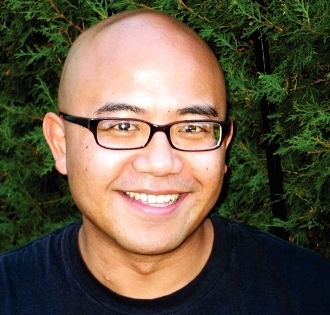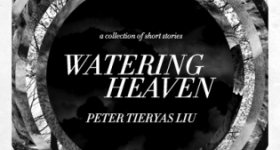Lysley Tenorio’s debut short story collection Monstress takes us through the metropolis of the San Francisco Bay Area to wasteland cities in central California. Tenorio’s Filipino and Filipino American characters dream of California as a
Promised Land that will give them money, love, fame, or acceptance. This may
sound like a typical first and second-generation immigrant story, but these
worn-out themes are resuscitated through Tenorio’s sharp voice, fresh
perspective, and dark humor.
His protagonists are outcasts, freaks, or nonconformists -- like the
transgender waitress in “The Brothers,” the AWOL American soldier man trapped
in a Filipino leper colony in “The View from Culion,” the disturbed
comic-obsessed boy in “Superassassin,” or even the teenager imagining escape
from her drab life and overprotective parents in “L’amour, CA.” These outsiders yearn for a better life than what’s
been given them and search for a place where they’ll be wanted. It is Tenorio’s
uncanny ability to make us see the humanity in these outsiders that make his
stories distinct.
In the title story, Checkers Rosario is a washed-up
Filipino filmmaker who specializes in low budget horror flicks. His regular
leading lady, Reva Gogo, whose acting credits include Bat-Winged Pygmy Queen and
Two-Headed Bride of Two-Headed Dracula, is considered a “mistress of monsters”
or a “monstress.” Their failed careers are given a second chance by Gaz Gazman,
a California
movie producer, who wants to take footage from Checkers’ monster movies and
splice them into his own sci-fi thriller. The deliciously smarmy Gaz Gazman
ends up being a no-name film student who works out of his mother’s basement.
With a gay leading man delivering canned lines to a leading lady who normally
howls and hisses at the camera, you can guess that the movie winds up being an
ideal pick for a night of Mystery Science
Theatre 3000 (the real inspiration behind this story is Horror of the Blood Monsters, credited
in some circles as the worst movie of all time). Though Checkers and Reva end
up having creative differences and she shows him her actual claws, she still understands
that Checkers loves her like she is “a thing of unequaled beauty” -- he is able to
continue loving a monstress. Tenorio is able to make us see past the space
sauna and homemade rubber tentacles and constructs a story that is, in the end,
a sweet story about having Hollywood
dreams with Roger Corman budgets.

Photo of the author by Tara Runyan
The poetry of Tenorio’s writing style is further showcased
in the story “Save the I Hotel.” Amidst the backdrop of one of the defining
moments in the Asian American Civil Rights Movement, the forced evacuation of
the I Hotel in 1977, the story tells how two Filipino immigrant bachelors in
anti-miscegenation San
Francisco carve out a space for themselves and find a
home in each other. Forty-three years before, as a 24-year old, Vicente was
Fortunado’s brash and charismatic guide to the ins and outs of Manilatown. After
an event one night that lasts a few seconds, their illicit love affairs make
Fortunado question both his identity and loyalty to Vicente. “[Fortunado] would
stand by the rail and look out at the Bay Bridge,
which was nearly finished. Its progress was evidence that the world still
turned forward, leaving behind a night when he was truly happy, and the moment
he was utterly finally known.” In this story, the characters embody the
unbridled optimism of youth. Their excitement about the possibilities of love
is captured in clandestine meetings and dark, forbidden kisses.
In an interview with the Examiner,
Tenorio says his ideas come from taking snippets of bizarre historic events and
re-imagining them as a backdrop in which to place his own characters. This
process gives the reader sometimes playful or sometimes dark insights into
possible motivations behind these events. For example, “Help” was inspired by
the true story of how a group of Marcos sympathizers attacked the Beatles at
the Manila airport for snubbing the president
and first lady. Tenorio reinvents the reason for the pathetic attack as a
display of loyalty from a fanatical high-level Marcos security guard. “Felix
Starro” was based on a real-life Filipino faith healer who “look[ed]
ageless…like Jesus or Dick Clark.” The shyster’s business prospects are threatened
by his grandson who is tired of scamming poor and gullible Filipinos. These retellings
infuse the actual events with a new take.
Lysley Tenorio’s moving collection takes you on the
emotional journey of his characters and, despite their monstrosities, I wanted
to make fun of Doris Day with them in a darkened Manila movie theatre, cry out
our broken hearts listening to a record of “Johnny Angel” over and over again,
look out at the night sky of San Francisco and contemplate our dreams, and slap
the stupid out of them when they start dating losers. I can’t wait to see what
Tenorio comes up with next.
Jenny Yap is a
lecturer in the English Department at California State University, East Bay. She
would like to see the inside of a space sauna.









Comments